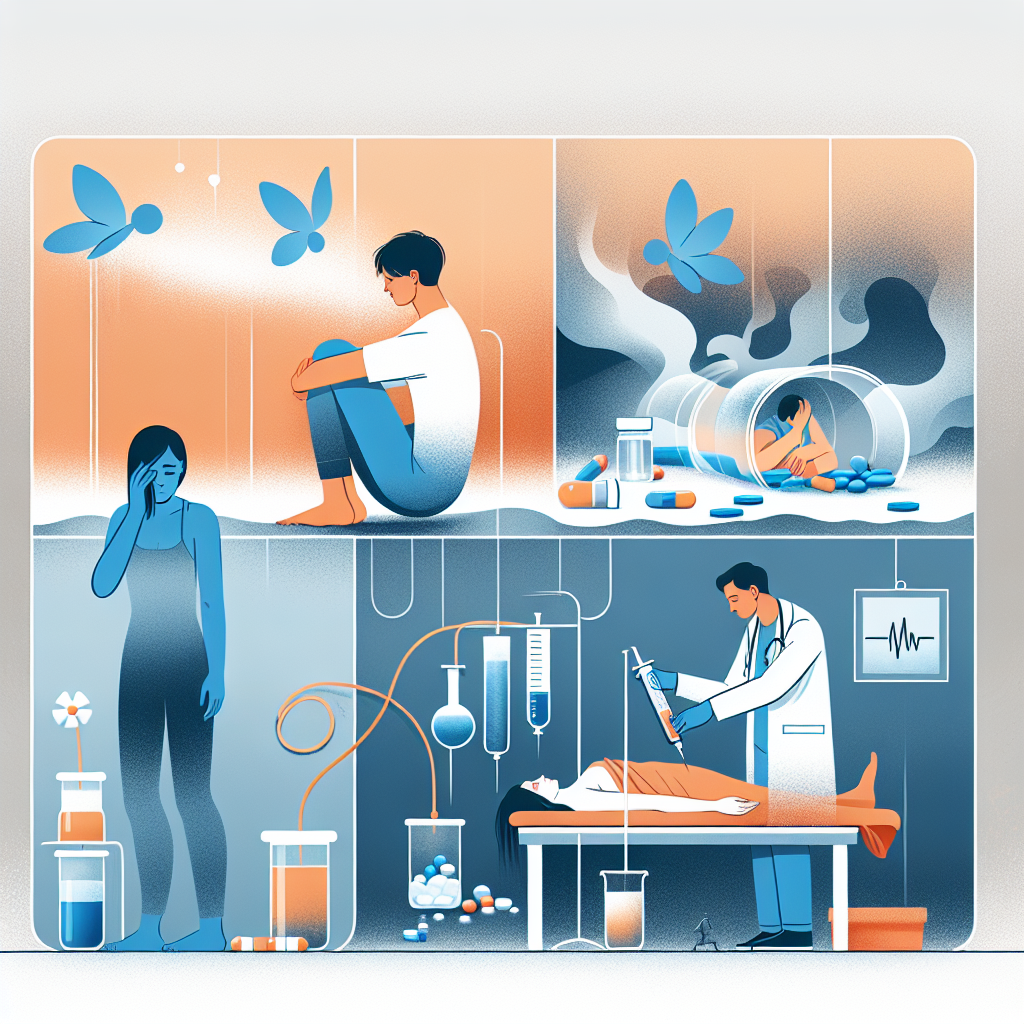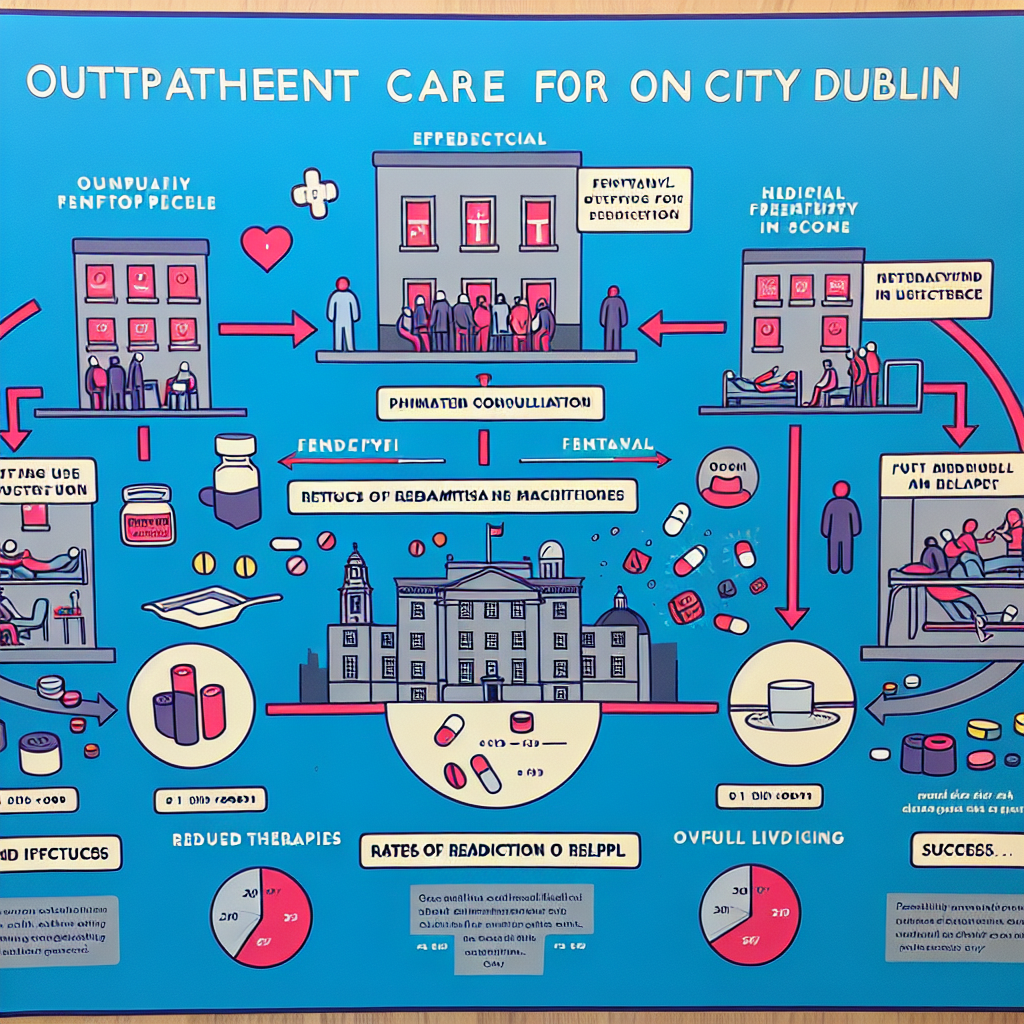-
Table of Contents

“Medical Detoxification: Your First Step to Freedom from Fentanyl Addiction”
Introduction
Medical detoxification is a critical first step in the treatment of fentanyl addiction, a powerful synthetic opioid that is significantly more potent than morphine. This process involves the supervised withdrawal from fentanyl under the care of healthcare professionals, ensuring the safety and comfort of the individual. Medical detoxification helps manage the severe withdrawal symptoms associated with fentanyl cessation, which can include intense cravings, anxiety, nausea, and severe pain. By providing a controlled environment and utilizing medications to alleviate withdrawal symptoms, medical detoxification reduces the risk of complications and prepares individuals for further addiction treatment. This initial phase is essential for stabilizing the patient, addressing immediate health concerns, and laying the groundwork for long-term recovery efforts.
The Role of Medical Detoxification in Overcoming Fentanyl Addiction
Fentanyl addiction is a harrowing ordeal that affects countless individuals and their families. This potent synthetic opioid, which is up to 100 times stronger than morphine, has been at the forefront of the opioid crisis, leading to a surge in overdose deaths and shattered lives. However, amidst the despair, there is hope. Medical detoxification plays a crucial role in helping individuals overcome fentanyl addiction, offering a structured and supportive pathway to recovery.
Medical detoxification, often referred to as medical detox, is the first critical step in the journey to overcoming fentanyl addiction. It involves the supervised withdrawal from the drug, ensuring that the process is as safe and comfortable as possible. Given the severe withdrawal symptoms associated with fentanyl, which can include intense cravings, anxiety, muscle pain, and gastrointestinal distress, medical detox provides a controlled environment where these symptoms can be managed effectively.
One of the primary benefits of medical detoxification is the presence of healthcare professionals who are trained to handle the complexities of opioid withdrawal. These professionals can administer medications that alleviate withdrawal symptoms, reducing the physical and psychological burden on the individual. For instance, medications such as methadone, buprenorphine, and clonidine can be used to ease withdrawal symptoms and cravings, making the detox process more tolerable. This medical support not only enhances the individual’s comfort but also significantly reduces the risk of relapse during this vulnerable phase.
Moreover, medical detoxification offers a structured environment that minimizes the triggers and stressors that often lead to substance use. In a detox facility, individuals are removed from the environments and situations that may have contributed to their addiction. This separation allows them to focus entirely on their recovery without the distractions and temptations of their previous lifestyle. The structured setting also provides a sense of routine and stability, which can be incredibly reassuring during the tumultuous early stages of recovery.
In addition to the physical aspects of detoxification, medical detox also addresses the psychological components of addiction. Many detox programs incorporate counseling and therapy sessions to help individuals understand the underlying causes of their addiction and develop coping strategies for the future. These therapeutic interventions are essential for building a strong foundation for long-term recovery. They help individuals gain insight into their behaviors, emotions, and thought patterns, empowering them to make healthier choices moving forward.
Furthermore, medical detoxification serves as a gateway to comprehensive addiction treatment. Completing detox is a significant achievement, but it is only the beginning of the recovery journey. Detox programs often provide referrals to inpatient or outpatient treatment programs where individuals can continue their recovery with a focus on therapy, education, and support. This continuum of care is vital for maintaining sobriety and preventing relapse. By transitioning from detox to ongoing treatment, individuals can build on the progress they have made and continue to develop the skills and resilience needed for lasting recovery.
In conclusion, medical detoxification is an indispensable component of overcoming fentanyl addiction. It offers a safe and supportive environment where individuals can begin their recovery journey with the guidance of healthcare professionals. By managing withdrawal symptoms, providing structure, addressing psychological needs, and facilitating access to further treatment, medical detox lays the groundwork for a successful and sustainable recovery. While the path to overcoming fentanyl addiction is undoubtedly challenging, medical detoxification provides the hope and support needed to embark on this transformative journey.
Benefits of Medical Detoxification for Fentanyl Addiction Recovery
Medical detoxification plays a crucial role in the recovery journey for individuals grappling with fentanyl addiction. This potent synthetic opioid, known for its high risk of dependency and overdose, necessitates a structured and medically supervised detox process to ensure safety and efficacy. The benefits of medical detoxification for fentanyl addiction recovery are manifold, offering a beacon of hope for those seeking to reclaim their lives from the grip of this powerful substance.
One of the primary advantages of medical detoxification is the provision of a safe and controlled environment. Fentanyl withdrawal can be particularly severe, with symptoms ranging from intense cravings and anxiety to more serious complications such as respiratory distress and cardiac issues. In a medical detox setting, healthcare professionals can monitor patients around the clock, ensuring that any adverse symptoms are promptly addressed. This constant supervision not only mitigates the physical risks associated with withdrawal but also provides a sense of security and support for the individual undergoing detox.
Moreover, medical detoxification offers the benefit of tailored treatment plans. Each person’s experience with fentanyl addiction is unique, influenced by factors such as the duration of use, the presence of co-occurring mental health disorders, and overall physical health. Medical professionals can assess these variables and develop a personalized detox plan that addresses the specific needs of the patient. This individualized approach enhances the effectiveness of the detox process, paving the way for a smoother transition to subsequent stages of recovery.
In addition to physical stabilization, medical detoxification also addresses the psychological aspects of fentanyl addiction. The emotional turmoil associated with withdrawal can be overwhelming, often leading to feelings of despair and hopelessness. Within a medical detox program, patients have access to mental health support, including counseling and therapy. These services help individuals navigate the emotional challenges of detox, fostering resilience and a positive mindset. By addressing both the physical and psychological dimensions of addiction, medical detoxification lays a comprehensive foundation for long-term recovery.
Furthermore, medical detoxification serves as a critical first step in the continuum of care for fentanyl addiction. Detox alone is not a cure; it is the initial phase that prepares individuals for more intensive treatment modalities such as inpatient rehabilitation, outpatient therapy, and support groups. By successfully completing medical detox, patients are better equipped to engage in these subsequent interventions with a clearer mind and a stronger sense of purpose. This continuity of care is essential for sustaining recovery and preventing relapse.
Another significant benefit of medical detoxification is the opportunity for education and empowerment. During the detox process, patients receive valuable information about addiction, its effects on the body and mind, and strategies for maintaining sobriety. This knowledge empowers individuals to make informed decisions about their health and recovery journey. Additionally, the supportive environment of a medical detox facility fosters a sense of community and connection, reminding patients that they are not alone in their struggle and that recovery is possible.
In conclusion, medical detoxification offers a multitude of benefits for individuals recovering from fentanyl addiction. By providing a safe and supportive environment, personalized treatment plans, comprehensive care for physical and psychological symptoms, and a bridge to further treatment, medical detox serves as a vital component of the recovery process. It instills hope, builds resilience, and sets the stage for a healthier, drug-free future. For those battling fentanyl addiction, medical detoxification is not just a step towards recovery; it is a lifeline to a renewed sense of self and a brighter tomorrow.
Q&A
1. **Question:** How does medical detoxification help manage withdrawal symptoms in fentanyl addiction?
**Answer:** Medical detoxification helps manage withdrawal symptoms in fentanyl addiction by providing a controlled environment where medical professionals can administer medications and therapies to alleviate symptoms, reduce cravings, and monitor the patient’s health to prevent complications.
2. **Question:** What role does medical supervision play during the detoxification process for fentanyl addiction?
**Answer:** Medical supervision during the detoxification process for fentanyl addiction ensures that the patient receives appropriate care, including the management of potentially severe withdrawal symptoms, prevention of relapse, and immediate intervention in case of medical emergencies, thereby increasing the safety and effectiveness of the detox process.
Conclusion
Medical detoxification helps with fentanyl addiction by providing a supervised and controlled environment where withdrawal symptoms can be managed safely. It reduces the risk of severe complications, such as respiratory distress and cardiac issues, which are common with fentanyl withdrawal. Medical professionals can administer medications to alleviate symptoms and cravings, making the detox process more tolerable. Additionally, medical detox serves as the first critical step in a comprehensive treatment plan, paving the way for further therapeutic interventions and long-term recovery strategies.



